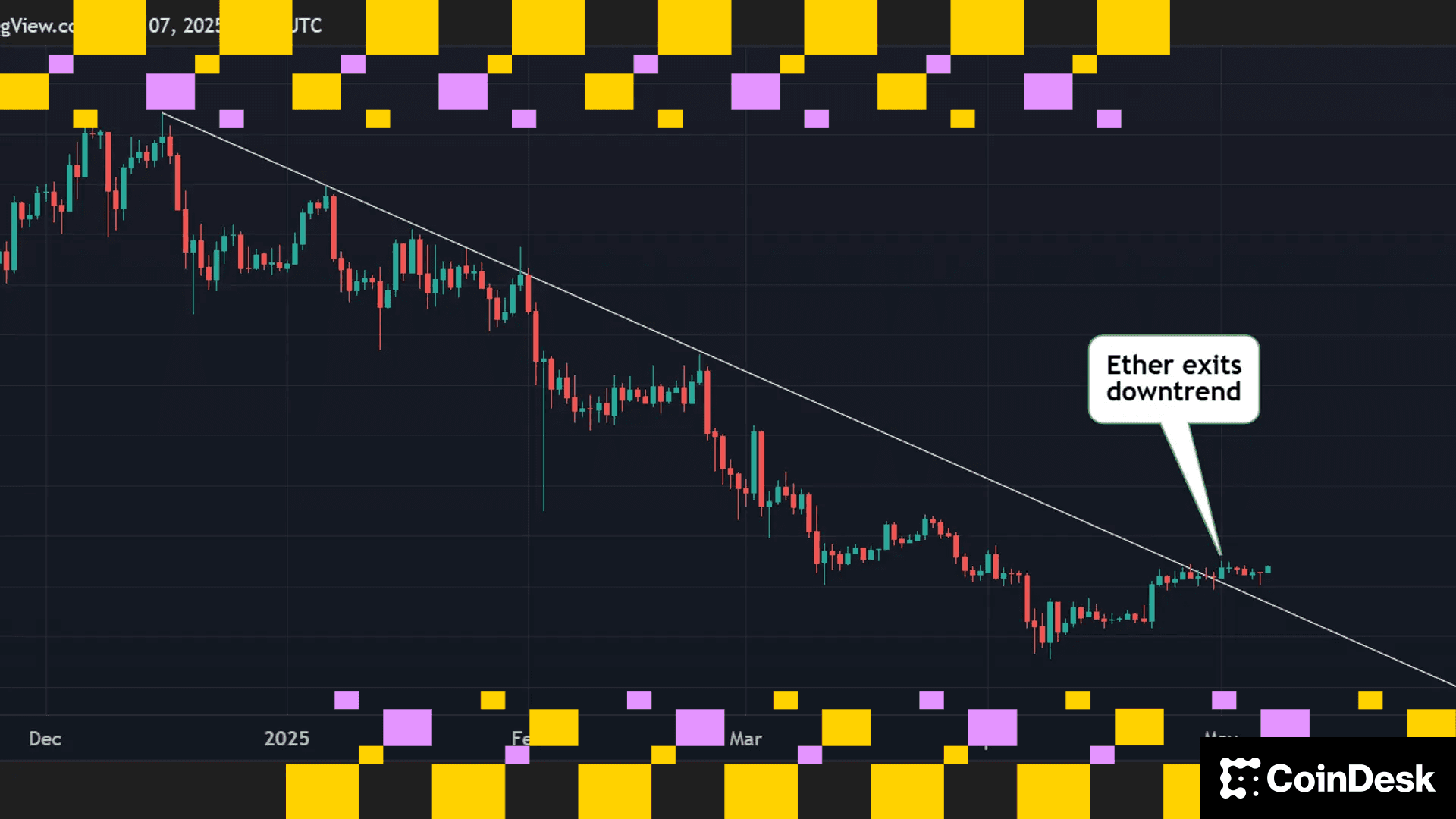Grayscale Bitcoin Trust Discount Reaches Record 50%
The shares have not traded at a premium to bitcoin since last March.

Grayscale Bitcoin Trust (GBTC) shares hit a record-high discount rate relative to the price of bitcoin (BTC), pushing past 50% for the first time after the U.S. Securities and Exchange Commission reiterated its reasons for denying an application to convert the world’s largest bitcoin fund into an exchange-traded fund.
Crypto analysts have said that the discount would likely close if the conversion went through, since the redemption process available for ETF market makers would likely cause the shares to trade back toward the price of the underlying bitcoin.

In the past couple hours, the discount has since pulled back slightly to around 48.66%.
GBTC, which is managed by Grayscale Investments, was designed as a way to let investors in traditional markets gain exposure to bitcoin, the largest cryptocurrency. The fund currently has about $10.7 billion of assets under management, a figure that’s down 65% over the past 12 months thanks largely to this year’s steep decline in crypto prices.
The fund is trading at a discount partly because investors, while free to sell GBTC shares in the market, have no way to redeem their holdings in exchange for the bitcoin in the trust. And in the meantime they’re being charged a 2% fee.
Negative sentiment surrounding the trust has swelled over the last few weeks as fears surfaced that crypto trading firm Genesis Global Trading, which is owned by Grayscale’s parent company, Digital Currency Group (DCG), might file for bankruptcy.
Grayscale says it’s operating as business as usual, but analysts and Twitter posters have suggested that any financial ramifications for DCG might somehow, at some point, affect GBTC. (CoinDesk is an independent subsidiary of DCG.)
Pablo Jodar, a crypto analyst at GenTwo, a financial service provider, said that some “investors do not trust the information that Grayscale discloses about the quantity of bitcoin that they’re holding, which contributes to selling pressure.”
He also said that a recent spate of deposit withdrawals from the big crypto exchange Binance may have dampened market sentiment. “The market is not trusting intermediaries anymore, and that is why you see investors moving money out of exchanges and financial instruments like GBTC,” he added.
Grayscale is currently being sued by hedge fund Fir Tree to obtain details about GBTC in order to investigate potential mismanagement and conflicts of interest. The firm said it wants Grayscale to resume redemptions and cut its 2% fees for the trust.
More For You
Exchange Review - March 2025

CoinDesk Data's monthly Exchange Review captures the key developments within the cryptocurrency exchange market. The report includes analyses that relate to exchange volumes, crypto derivatives trading, market segmentation by fees, fiat trading, and more.
What to know:
Trading activity softened in March as market uncertainty grew amid escalating tariff tensions between the U.S. and global trading partners. Centralized exchanges recorded their lowest combined trading volume since October, declining 6.24% to $6.79tn. This marked the third consecutive monthly decline across both market segments, with spot trading volume falling 14.1% to $1.98tn and derivatives trading slipping 2.56% to $4.81tn.
- Trading Volumes Decline for Third Consecutive Month: Combined spot and derivatives trading volume on centralized exchanges fell by 6.24% to $6.79tn in March 2025, reaching the lowest level since October. Both spot and derivatives markets recorded their third consecutive monthly decline, falling 14.1% and 2.56% to $1.98tn and $4.81tn respectively.
- Institutional Crypto Trading Volume on CME Falls 23.5%: In March, total derivatives trading volume on the CME exchange fell by 23.5% to $175bn, the lowest monthly volume since October 2024. CME's market share among derivatives exchanges dropped from 4.63% to 3.64%, suggesting declining institutional interest amid current macroeconomic conditions.
- Bybit Spot Market Share Slides in March: Spot trading volume on Bybit fell by 52.1% to $81.1bn in March, coinciding with decreased trading activity following the hack of the exchange's cold wallets in February. Bybit's spot market share dropped from 7.35% to 4.10%, its lowest since July 2023.
Більше для вас











